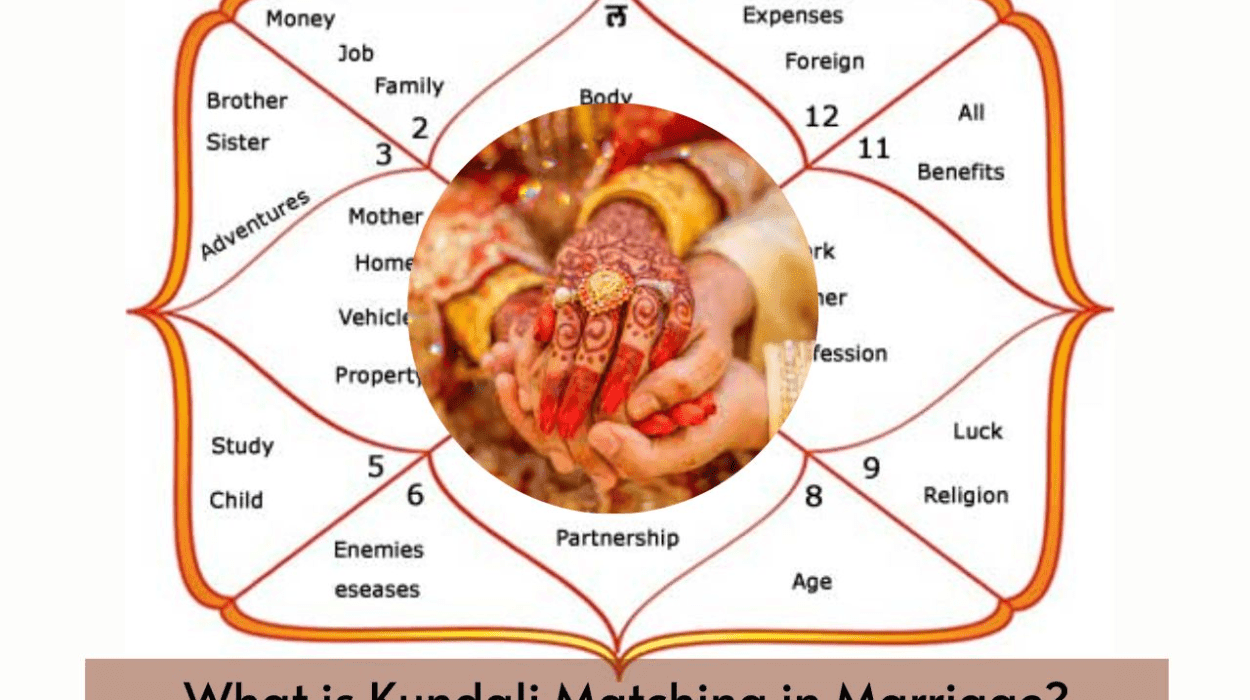In the vibrant tapestry of Indian culture, where traditions intertwine with everyday life, Kundali matching stands out as a time-honored ritual in the realm of marriages. It’s not just about aligning stars and planets; it’s about ensuring a harmonious journey for two souls embarking on the adventure of a lifetime together. Let’s dive into why Kundali matching holds such paramount importance in Indian marriages.
Kundali Matching: A Cosmic Preparation for Marriage
Imagine planning a road trip. You check the weather, pack appropriately, and ensure your car is in good shape. Kundali matching is a bit like that preparation, but on a cosmic scale. It’s an intricate process where the birth charts (Kundalis) of the prospective bride and groom are compared to assess their compatibility. This isn’t a mere formality; it’s believed to provide insights into the couple’s future together, from their happiness and prosperity to health and longevity.
Vedic Astrology: The Foundation of Kundali Matching
The practice of Kundali matching is deeply rooted in Vedic astrology, which posits that the positions of planets and stars at the time of one’s birth significantly influence their life. When two individuals come together in marriage, their combined cosmic energies play a crucial role in determining the quality of their relationship. Kundali matching evaluates several factors, such as Guna Milan, Manglik Dosha, and the influence of various planets, to predict potential challenges and the overall harmony between the couple.
Guna Milan: The Matching of Qualities
What is Guna Milan?
Guna Milan, or the matching of qualities, is a fundamental aspect of Kundali matching. There are 36 Gunas, and a higher score signifies better compatibility. Each Guna represents different facets of life, including mental compatibility, health, progeny, and mutual respect. A good match ensures that the couple is likely to have a balanced and fulfilling life together.
How is Guna Milan Calculated?
The calculation of Guna Milan involves the comparison of eight key factors:
- Varna: The caste or community of the couple.
- Vashya: Mutual attraction and control in the relationship.
- Tara: Birth star compatibility.
- Yoni: Sexual compatibility.
- Graha Maitri: Mental compatibility and friendship.
- Gana: Temperament compatibility.
- Bhakoot: Emotional compatibility and health.
- Nadi: Genetic compatibility and progeny.
Manglik Dosha: Addressing Potential Challenges
What is Manglik Dosha?
Manglik Dosha is another crucial consideration in Kundali matching. It is associated with the position of Mars in one’s Kundali and is believed to bring turbulence to the marital relationship if not matched properly. A person with Manglik Dosha is referred to as Manglik.
How is Manglik Dosha Mitigated?
If both partners are Manglik, the Dosha is said to cancel out, balancing the energies. However, if only one partner is Manglik, astrologers often suggest remedies and rituals to mitigate the effects of Manglik Dosha, ensuring a smoother marital journey. These remedies might include specific prayers, rituals, or even marrying a symbolic tree or idol before the actual marriage to neutralize the Dosha.
Emotional and Cultural Significance
Bringing Families Together
Beyond the technicalities and cosmic calculations, Kundali matching holds emotional and cultural significance. It’s a process that brings families together, fostering a sense of unity and shared destiny. It’s an opportunity for introspection, where families delve into the personalities and potential futures of the bride and groom, often leading to deeper connections and understanding.
Honoring Tradition and Collective Wisdom
Moreover, Kundali matching reflects the collective wisdom passed down through generations. It’s a way of honoring the traditions and beliefs that have guided countless marriages to success. In a world that’s constantly evolving, these rituals provide a sense of continuity and stability, grounding the couple in a rich cultural heritage.
Kundali matching is a profound and multifaceted practice that goes beyond mere superstition. It’s a blend of scientific astrological calculations, cultural traditions, and emotional bonding. By aligning the cosmic energies of the prospective bride and groom, it aims to ensure a harmonious and prosperous journey through life together. In the end, Kundali matching is about more than just compatibility; it’s about embracing the rich cultural heritage and collective wisdom that has been a cornerstone of Indian marriages for centuries.







